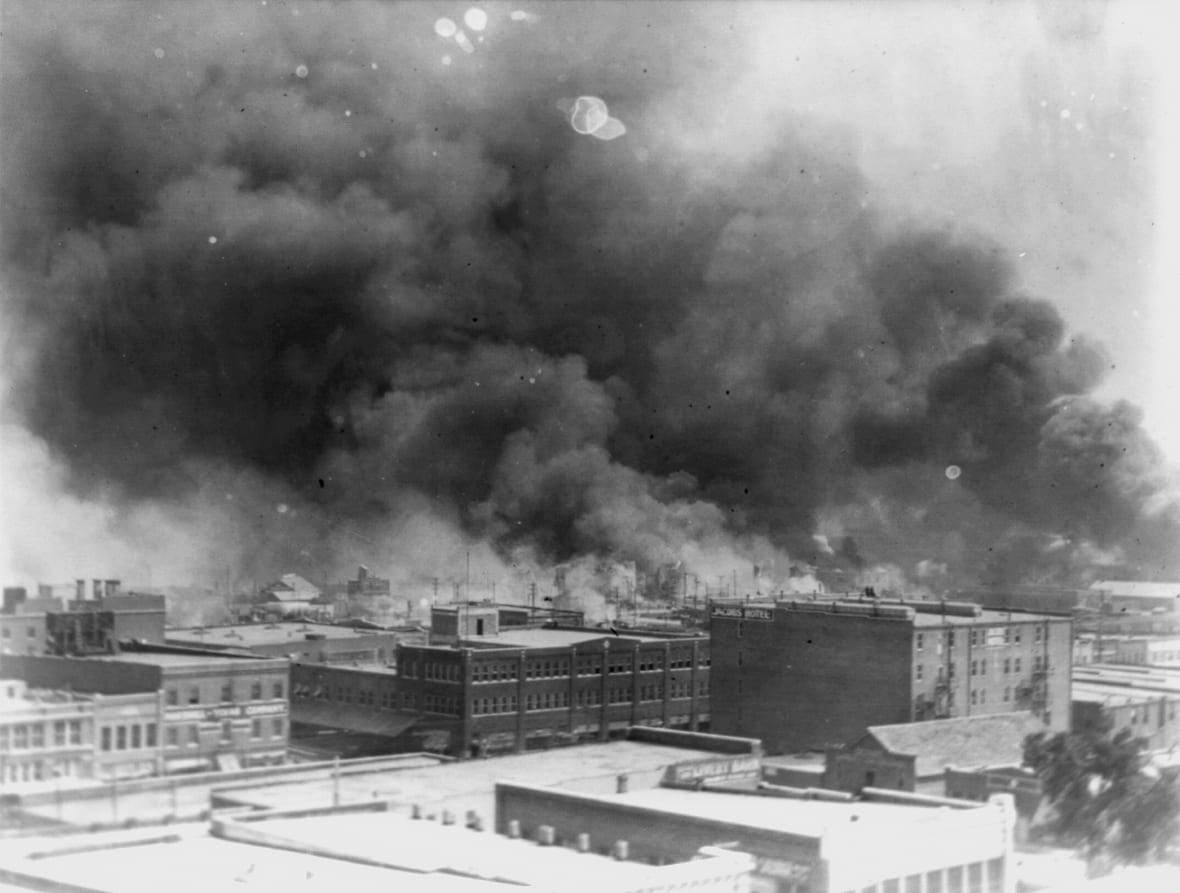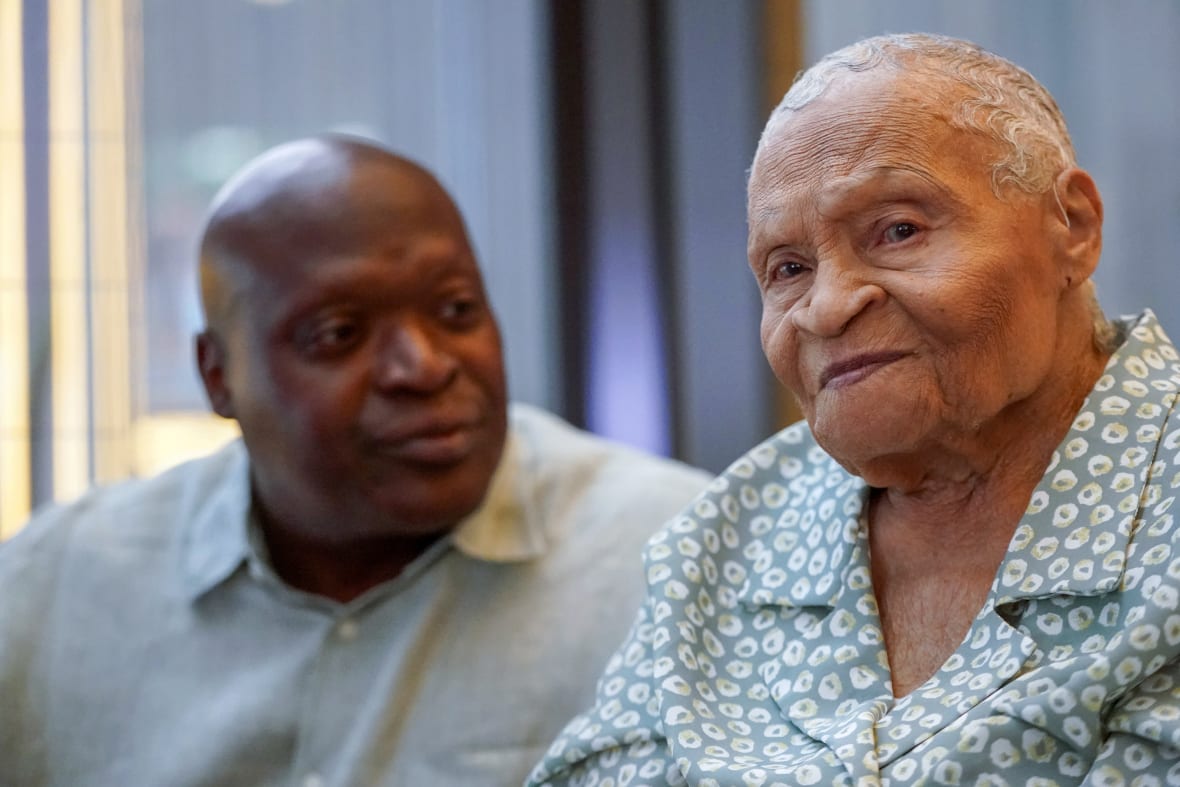Judge throws out Tulsa Race Massacre lawsuit that sought reparations
The judge “condemned the three living Tulsa Race Massacre Survivors to languish" until their deaths on an appellate docket, an advocacy group said. The survivors are all more than 100 years old.
An Oklahoma judge has thrown out a lawsuit seeking reparations for the 1921 Tulsa Race Massacre, dashing an effort to obtain some measure of legal justice by survivors of the deadly racist rampage.
Judge Caroline Wall on Friday dismissed with prejudice the lawsuit trying to force the city and others to make recompense for the destruction of the once-thriving Black district known as Greenwood.
The order comes in a case by three survivors of the attack, who are all now over 100 years old and sued in 2020 with the hope of seeing what their attorney called “justice in their lifetime.”

Tulsa Mayor G.T. Bynum said in a statement that the city has yet to receive the full court order. “The city remains committed to finding the graves of 1921 Tulsa Race Massacre victims, fostering economic investment in the Greenwood District, educating future generations about the worst event in our community’s history, and building a city where every person has an equal opportunity for a great life,” he said.
A lawyer for the survivors — Lessie Benningfield Randle, Viola Fletcher and Hughes Van Ellis — did not say Sunday whether they plan to appeal. But a group supporting the lawsuit suggested they are likely to challenge Wall’s decision.
“Judge Wall effectively condemned the three living Tulsa Race Massacre Survivors to languish — genuinely to death — on Oklahoma’s appellate docket,” the group, Justice for Greenwood, said in a statement. “There is no semblance of justice or access to justice here.”
Wall, a Tulsa County District Court judge, wrote in a brief order that she was tossing the case based on arguments from the city, regional chamber of commerce and other state and local government agencies. She had ruled against the defendants’ motions to dismiss and allowed the case to proceed last year.
Local judicial elections in Oklahoma are technically nonpartisan, but Wall has described herself as a “Constitutional Conservative” in past campaign questionnaires.
The lawsuit was brought under Oklahoma’s public nuisance law, saying the actions of the white mob that killed hundreds of Black residents and destroyed what had been the nation’s most prosperous Black business district continue to affect the city today.
It contended that Tulsa’s long history of racial division and tension stemmed from the massacre, during which an angry white mob descended on a 35-block area, looting, killing and burning it to the ground. Beyond those killed, thousands more were left homeless and living in a hastily constructed internment camp.
The city and insurance companies never compensated victims for their losses, and the massacre ultimately resulted in racial and economic disparities that still exist today, the lawsuit argued. It sought a detailed accounting of the property and wealth lost or stolen in the massacre, the construction of a hospital in north Tulsa and the creation of a victims compensation fund, among other things.

A Chamber of Commerce attorney previously said that the massacre was horrible, but the nuisance it caused was not ongoing.
Fletcher, who is 109 and the oldest living survivor, released a memoir last week about the life she lived in the shadow of the massacre. It will become widely available for purchase in August.
In 2019, Oklahoma’s attorney general used the public nuisance law to force opioid drug maker Johnson & Johnson to pay the state $465 million in damages. The Oklahoma Supreme Court overturned that decision two years later.
TheGrio is FREE on your TV via Apple TV, Amazon Fire, Roku and Android TV. Also, please download theGrio mobile apps today!

